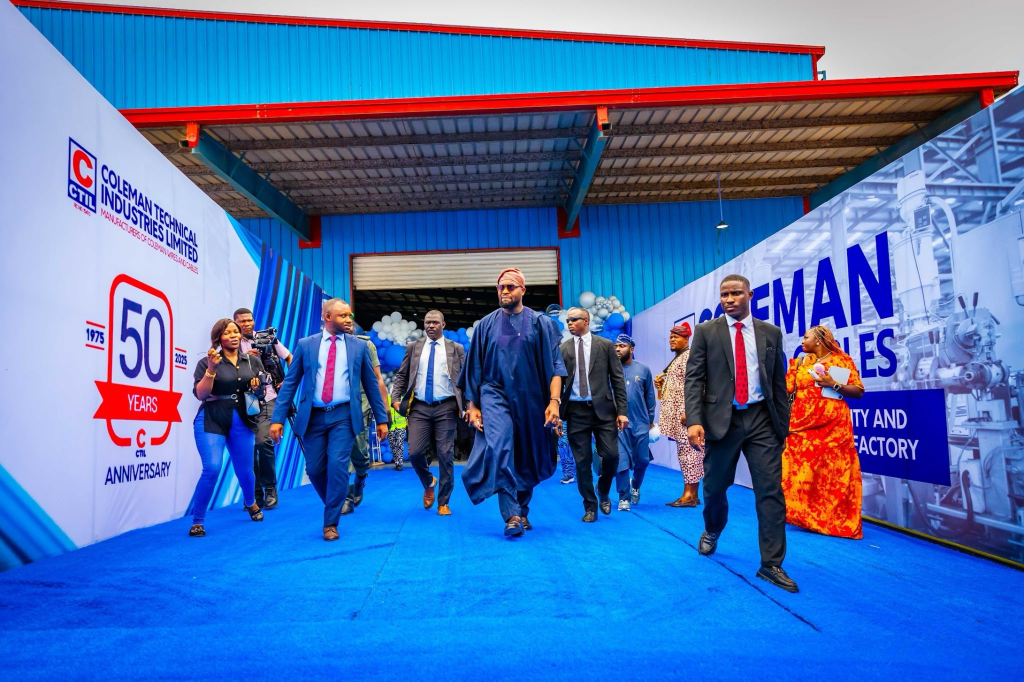Nigeria’s digital infrastructure has taken a significant step forward with the commissioning of Africa’s largest fibre optic cable factory and the continent’s first fibre-reinforced plastic (FRP) manufacturing facility.
The plant, built by Coleman Technical Industries Limited (CTIL) in Sagamu, Ogun State, is a strategic asset for national development.’ Commissioned by President Bola Tinubu, the facility can produce up to nine million kilometres of fibre optic cables annually and process about 13,000 tons of copper and aluminum each month, according to a statement.
President Tinubu, represented by the Minister of Industry, Trade and Investment, Dr Jumoke Oduwole, described the facility as “a strategic national asset that strengthens the digital backbone of our economy and enhances Nigeria’s competitiveness under the AfCFTA.”
The Minister of Communications, Innovation, and Digital Economy, Dr Bosun Tijani, said the government’s plan to deploy 90,000 kilometres of fibre nationwide will rely on local manufacturers, such as Coleman, and be supported by robust local financing partnerships.
The Coleman facility, backed by First City Monument Bank (FCMB), the Bank of Industry (BOI), and InfraCredit, shows how aligned finance can turn industrial ambition into national progress. FCMB’s Chief Executive Officer, Mrs Yemisi Edun, reaffirmed the bank’s commitment to financing infrastructure that drives economic inclusion and innovation.
“This facility shows what happens when finance becomes an enabler of national progress. FCMB is proud to be part of a partnership that expands manufacturing capacity, creates jobs, and positions Nigeria as a key player in Africa’s digital future,” she said.
Coleman’s Managing Director, Mr George Onafowokan, praised the financiers’ role in bringing the vision to life, noting that the project will create over 20,000 direct jobs and 200,000 indirect jobs and generate more than N1 trillion in export revenue.
Ogun State Governor Prince Dapo Abiodun said the factory’s commissioning marks a major milestone in Nigeria’s digital infrastructure drive. He noted that local fibre production will help close the digital divide, reduce import dependence, and generate thousands of jobs across the manufacturing, logistics, and ICT sectors.















